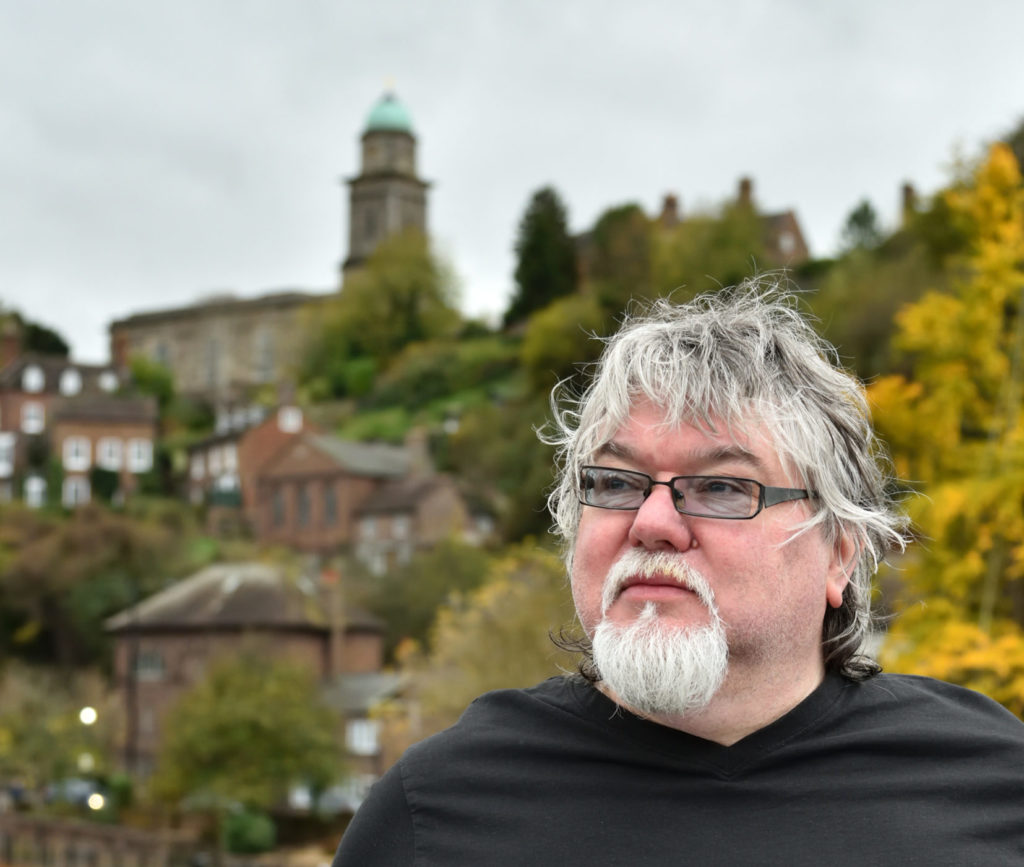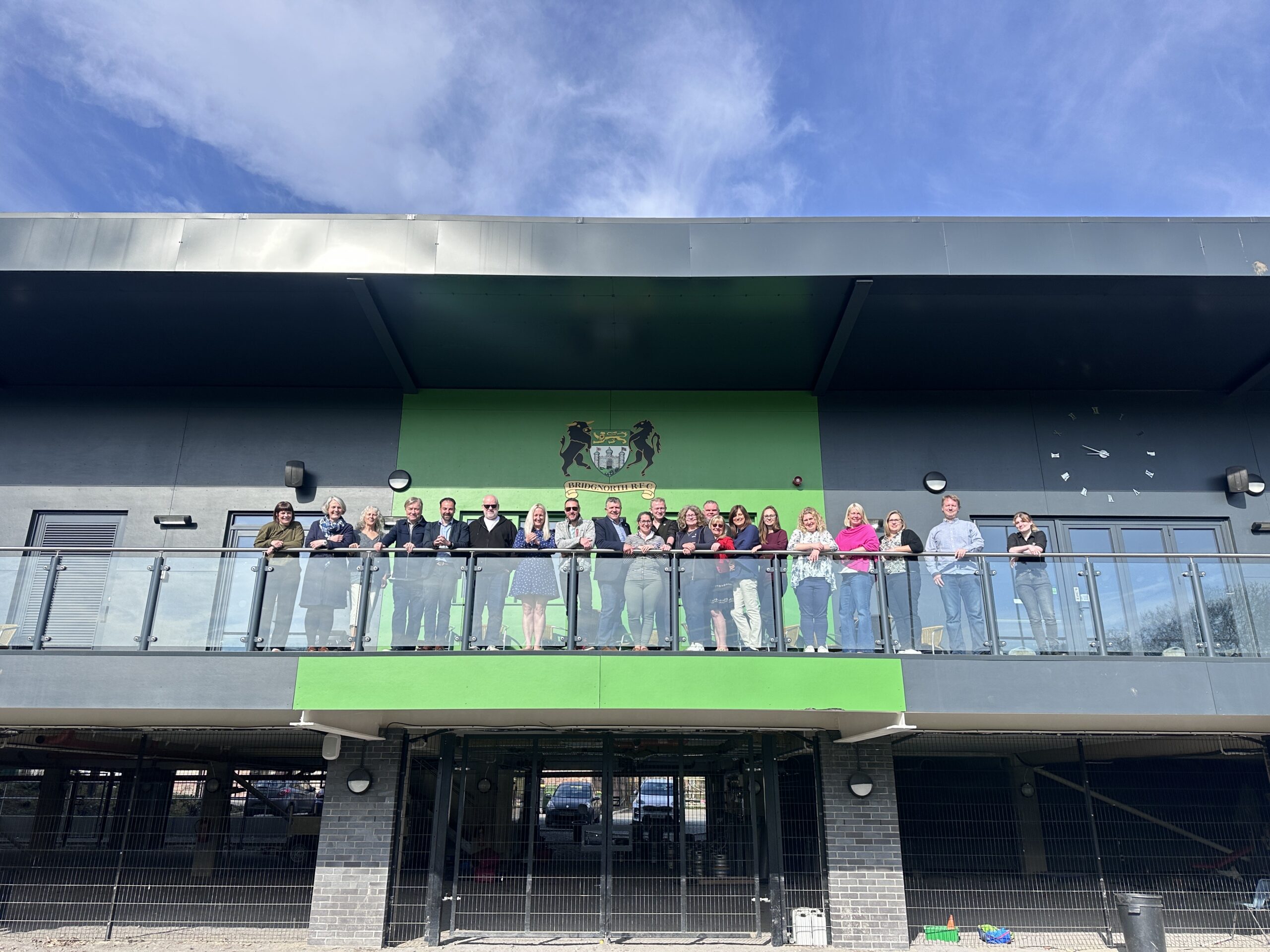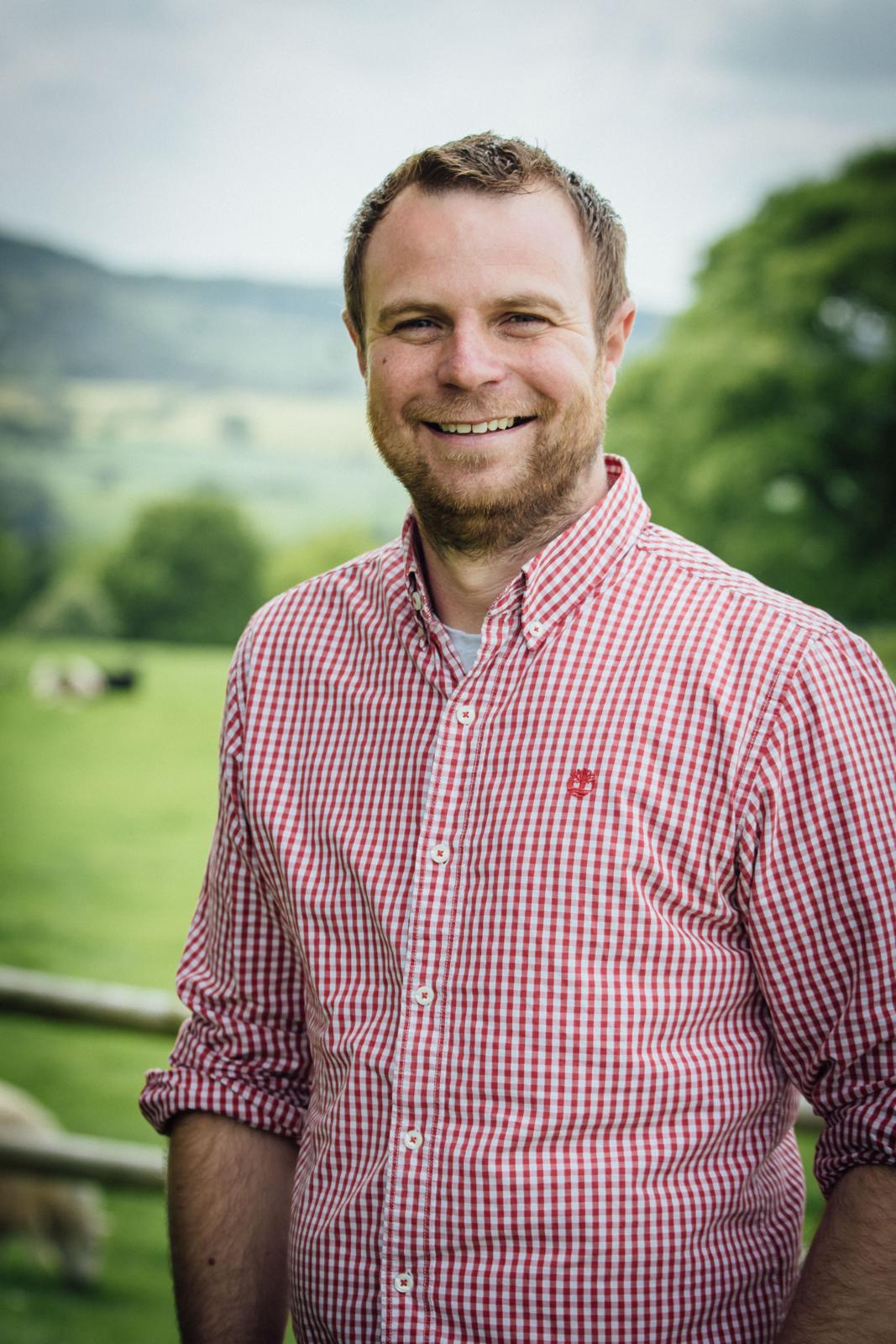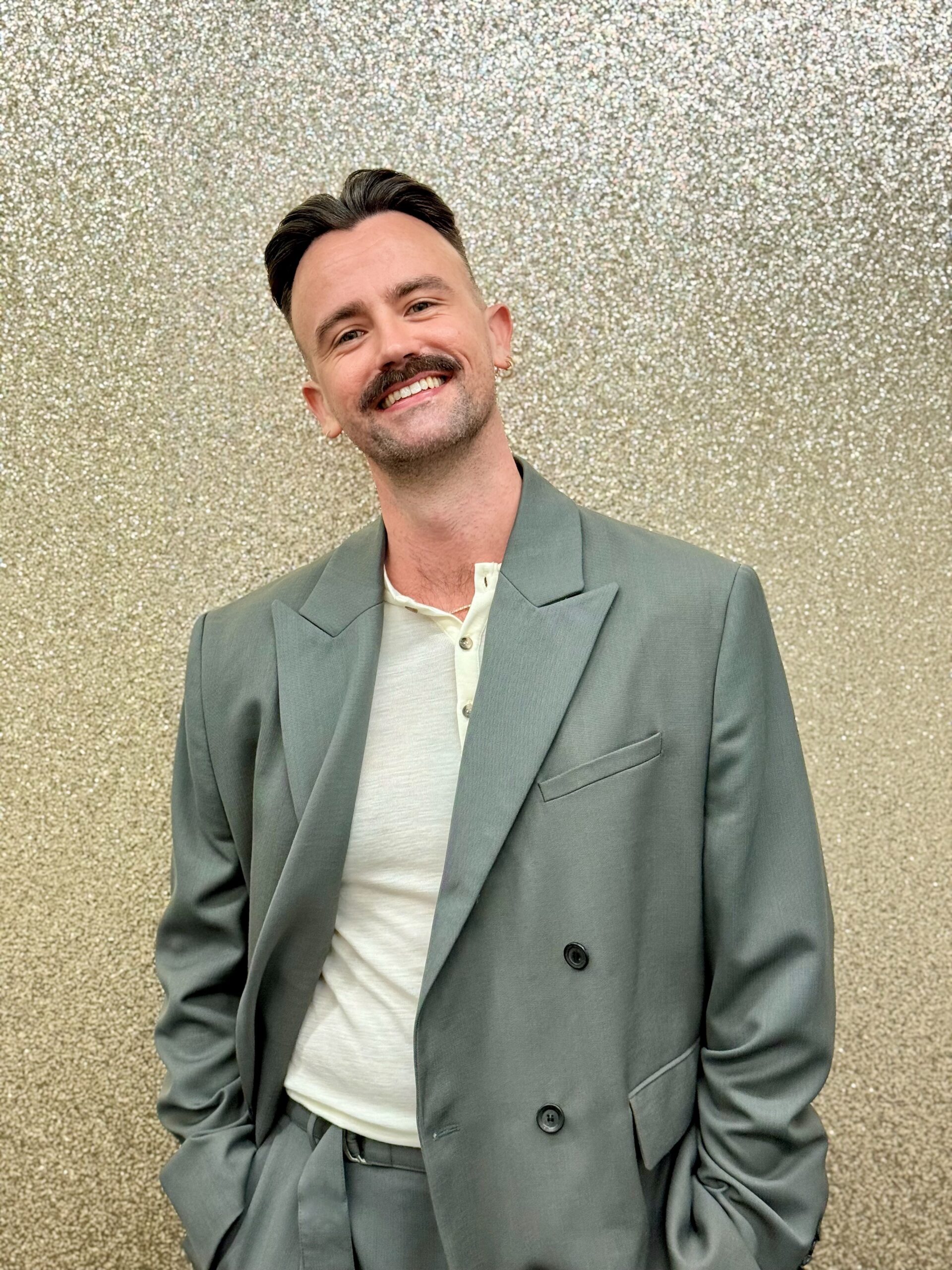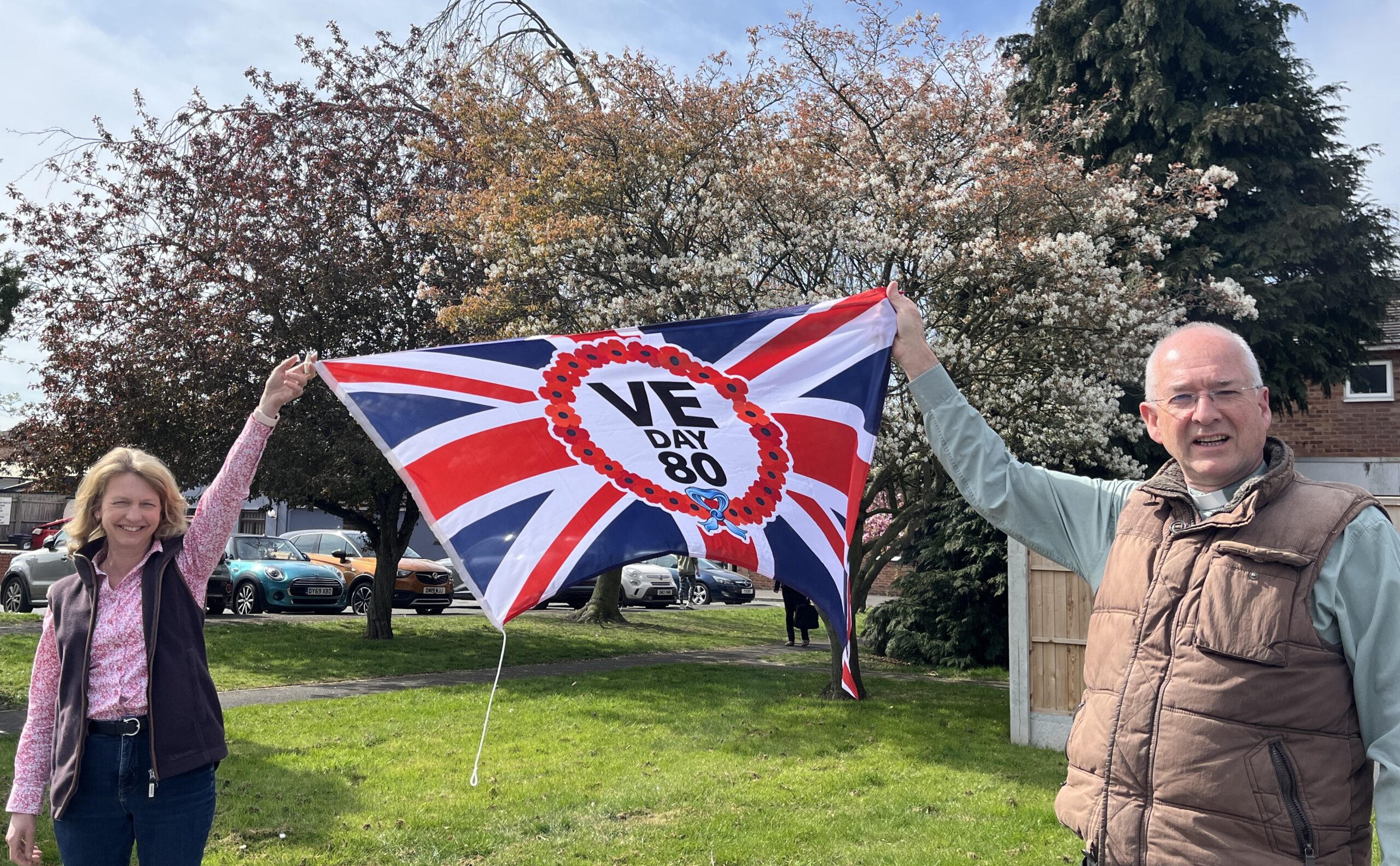Neil Thomas meets a Bridgnorth man who has written movie screenplays, TV scripts, plays and books and rubs shoulders with the famous.
Filming is due to be wrapped up this spring in Malta on the new spy thriller Cold Sun. It has a starry cast –Tara Reid, Patrick Bergin, Rita Tushingham, Ian Ogilvy, Jamie Foreman and Gabriella Wright – and an accomplished director Jason Figgis.
Produced out of Elstree Studios, it tells the story of rookie agents from MI6 and Interpol, played by Reid and Wright, who join forces to defeat an international criminal gang.
It’s a big-budget movie that promises glamour and thrills in equal measure with an international release that has an eye on the lucrative American market.
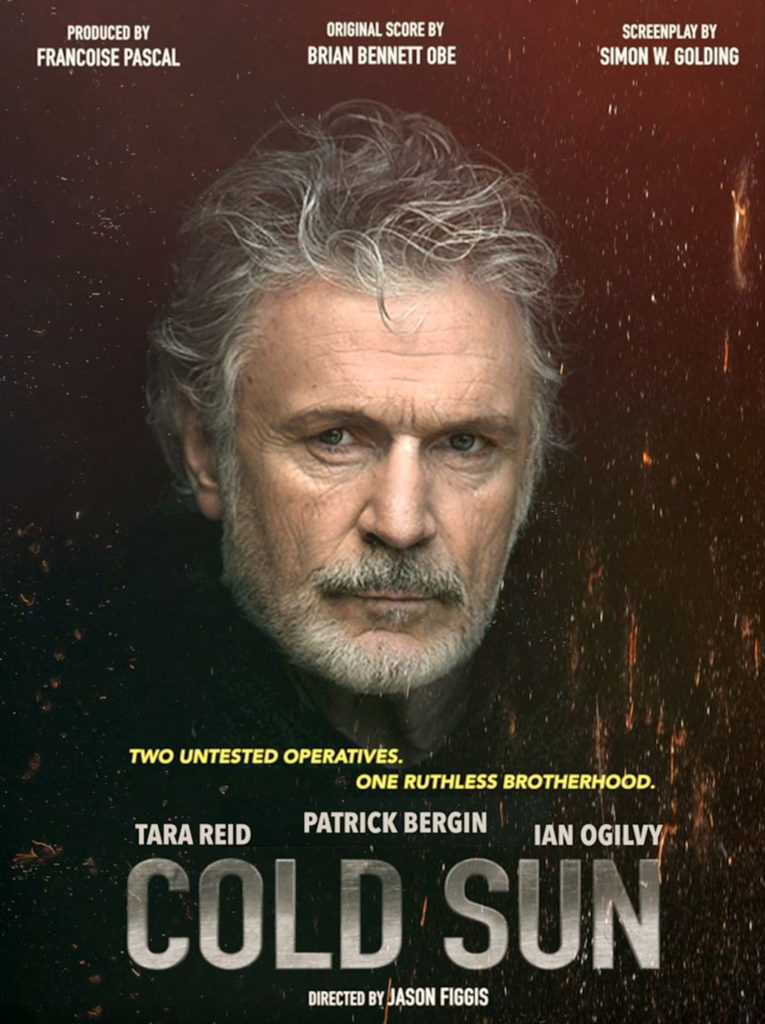
And it was conceived and written in Bridgnorth!
In the upstairs office of a smart detached house in a sleepy residential area on the edge of town, to be precise.
It is here that writer Simon W Golding does much of his work, in the home he shares with mother Ann and teenage daughter Summer.
Not that visitors are likely to catch him at the keyboard – unless they call in the middle of the night. Simon tends to start work as the rest of us are heading off to bed.
“I’ve always worked better that way. I take a very disciplined approach and writing through the night cuts out distractions,” he says as we chat in his comfortable lounge in the early evening (he sleeps during the day).
This solitary, nocturnal life belies a sociable personality; Simon has an appetite for conversation and good humour. It is no surprise to learn that he greatly enjoys the collaborative side of his art. And he has teamed up with some household names.
Glamorous television and radio presenter Melanie Sykes is a long-term writing partner, with whom he’s worked on, amongst other things, a comedy/drama script titled Bern & Glo, earmarked for a main-stream television company, and a fictional novel, Northern Lights.
He produced the recently-released docudrama Love with another writing partner Samantha Beckinsale, who as an actress has a string of television credits including the drama series London’s Burning and sitcom Shelley. She is, of course, the half-sister of actress Kate Beckinsale and daughter of the late Richard Beckinsale, who in classic comedies such as Porridge, Rising Damp and The Lovers, made millions laugh.
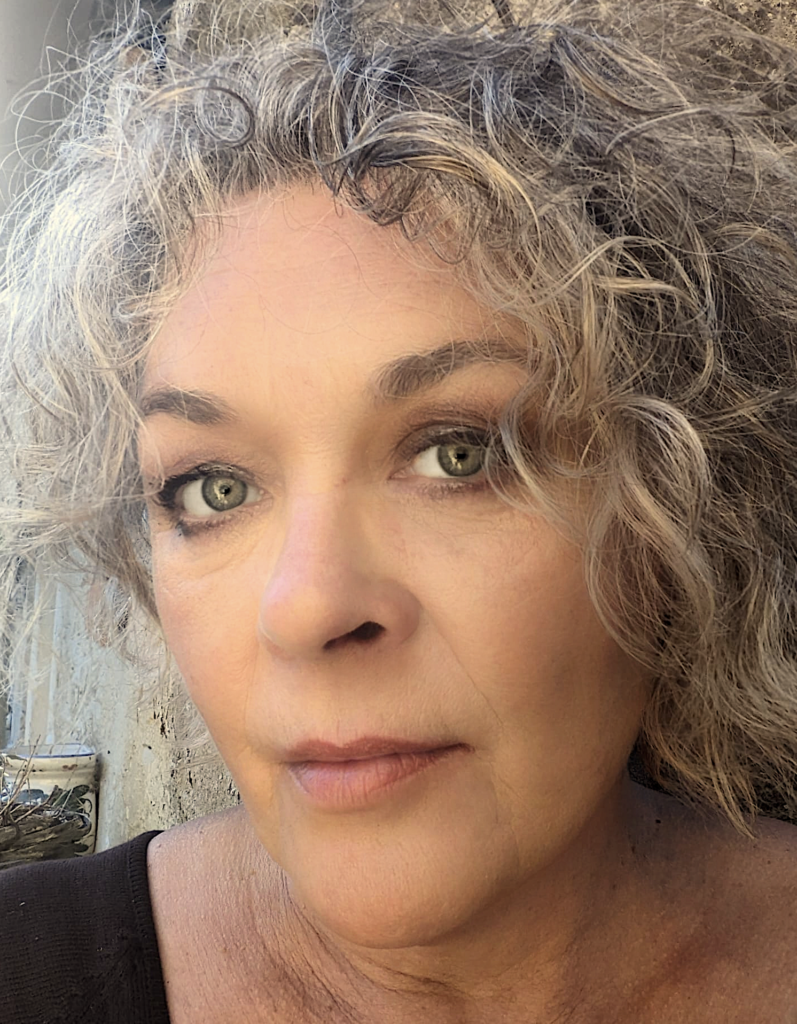
There is nothing funny about LOVE?, though. It tackles the harrowing subject of domestic abuse, which Samantha has experienced personally.
“It explores the hidden side of domestic abuse, rather than the more obvious cuts, breaks and bruises,” Simon explains. “You won’t see a punch thrown in this film. It’s about coercive control, the chipping away at someone’s self-esteem, the psychological torture that one person can inflict on another, sometimes over years. It’s about the signs – the woman who no longer wears make-up, stops seeing her friends, gives the impression she feels worthless.
“Originally, I was going to write it with Sam’s input. But we agreed that, because of her experiences, she had to write it and I’d produce it.
“She wants the film to give a voice to all those who suffer in silence. The domestic abuse world, police, NHS hierarchy, industry professionals, have responded very positively to it. It’s not something that I’ve had any experience of but I’ve been swept along by Sam’s passion for the project.
“We didn’t do it for the money. We did it because we believe it in.”
Simon has worked on a screenplay with actor and writer Norman Eshley – fans of the classic sitcom George and Mildred will recognise him – and a 10-part comedy series called Joan with another writing partner, the actress, writer and impressionist Francine Lewis, who shot to fame on the 2013 series of Britain’s Got Talent.
I rib Simon that a theme is developing here – his talent for teaming up artistically with glamorous women.
It extends to his personal life. He was once married to top fashion model, beauty queen and television presenter Amanda-Jane Taylor.
“We met in pub/nightclub. She certainly made an impression; a beautiful redhead, just under 6ft tall. She was 19 when we met and I was 12 years older but we hit it off. She was in beauty pageants and, as Miss Somerset, took part in Miss UK in which one of the judges was Richard Branson.
“Amanda-Jane had this exciting life, jetting off to Milan for fashion assignments, heading into studios for presenting jobs and so on, yet at heart she was a home-bird.”
After they divorced, Simon was in a relationship in Bridgnorth. He became a father for the first time at the age of 40 when his partner Gabrielle gave birth to Summer, his only child and the apple of his eye.
“I’m immensely proud of her. Her mother is in the hospitality industry and Summer’s followed suit to an extent, working for an events company which she loves. But she also took a keen interest in creative writing as a girl and showed a talent for it, which I’m thrilled about.”
Simon’s writing career took off in the early 1990s when he started writing for national magazines such as Reader’s Digest, Cosmopolitan, FHM and The Great Outdoors. From there, he graduated to writing material for the topical BBC radio satires The News Huddlines – starring much-loved comedian Roy Hudd – and Week Ending.
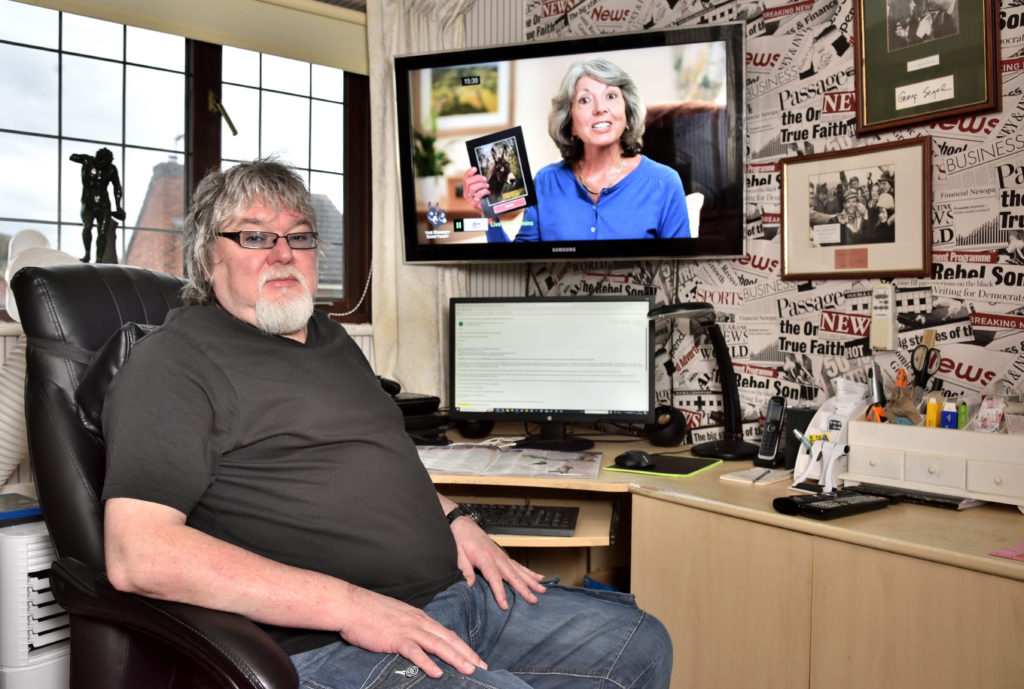
It was the publication of the fictional novella Manquito by Minerva Press in 1995 that launched Simon as an author in his own right.
Early in his career he was also a playwright, liaising with actor, musician and writer John Gorman, of The Scaffold, and veteran television scriptwriter Vince Powell. Simon’s one-act absurdist play Mannequin won a prestigious award and was performed at the Edinburgh International Festival.
There was a move into non-fiction with a 1996 revision of the worldwide best seller Killing Time, a celebrated miscarriage of justice. It is the recounting by Noel Fellowes of his own wrongful conviction and imprisonment. In 1970, the 22-year-old taxi driver and ex-policeman, was arrested and charged with the manslaughter of Harold Parkinson, an elderly coin collector in Lancashire. Fellowes always claimed he had never even met Mr. Parkinson, but was sent to prison where, as an ex-policeman, he suffered at the hands of fellow inmates. After four years of his seven-year sentence, he was released on parole, married, started a business and became a Christian. But the legacy of his wrongful conviction haunted him until 1984 when a career criminal confessed to the murder. In 1985, Noel Fellowes was cleared.
Simon’s work on the book – the foreword of which was provided by celebrated wrongful conviction campaigner Ludovic Kennedy – and 2001 documentary that followed it, fed into Simon’s long-held interest in alleged legal miscarriages.
This led him to research a local case that made national headlines, a crime as dark as any . . . the cold-blooded murder of a child.
Simon’s controversial book surrounds the shooting of a 13-year-old newspaper boy in 1978. Scapegoat for Murder: The Truth About the Killing of Carl Bridgewater, highlights new evidence.
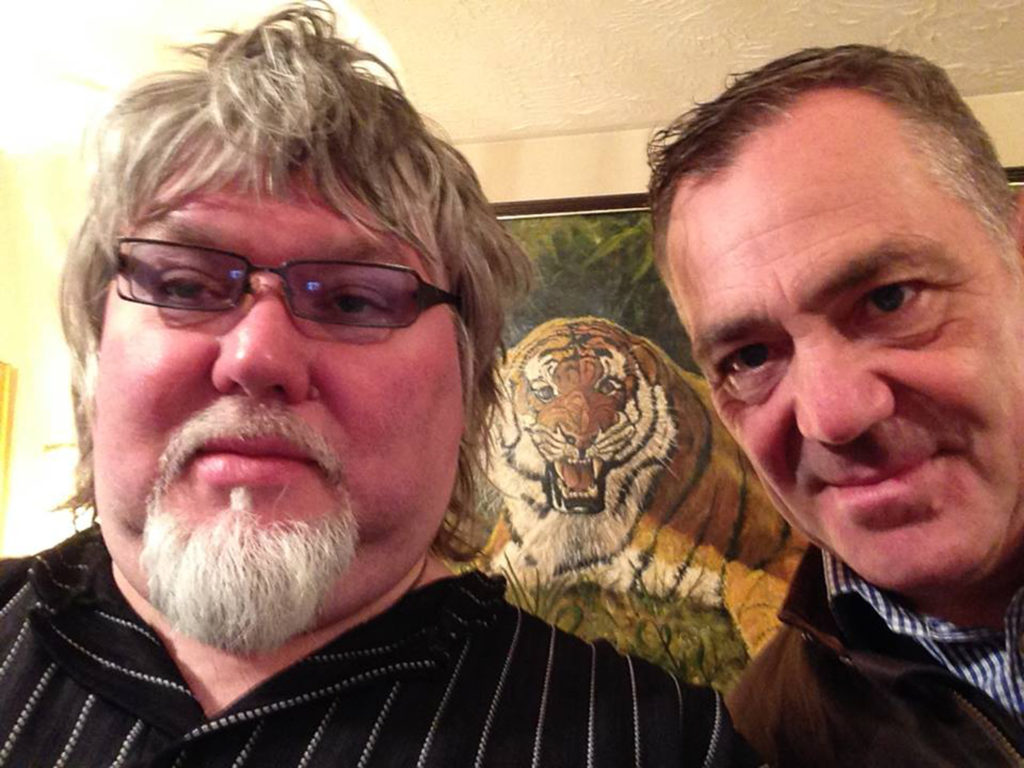
Carl was thought by police to have disturbed burglars while delivering a newspaper to Yew Tree Farm, near Stourbridge, and was killed at close range by a shotgun. Four men were subsequently convicted. In February 1997, after almost 20 years inside, their convictions were overturned and the three survivors released, the fourth having died in prison. The investigations were carried out by the West Midlands Serious Crime Squad, which was later disbanded after an inquiry into corruption and bungled investigations.
Bert Spencer, a uniformed ambulance driver in Stourbridge, had been investigated by police at the time. He drove a blue Vauxhall, the same type of car spotted at the farm on the afternoon of the murder. Witnesses described the driver as a uniformed man. Spencer had a shotgun licence and was regularly allowed to shoot at Yew Tree Farm. However, he was eliminated from inquiries after the arrest of the four other suspects.
Shortly afterwards, Spencer shot dead 70-year-old Hubert Wilkes at neighbouring Holloway Farm and was imprisoned for life in 1980.
He is featured in Scapegoat for Murder, interviewed by top criminologist David Wilson at Simon’s invitation. In June 2016, Channel 4 screened a documentary based on Simon’s book called Interview with a Murderer, in which Professor Wilson questioned Spencer and his former wife, who had not spoken publicly before.
DB Publishing launched the book straight afterwards and Simon wrote in national papers such as the Observer and Guardian about the case. He won a Broadcast Award in 2017 for the documentary, which had been adapted from his book, while Channel 4 won Best Documentary Programme. The documentary also won a Royal Television Award.
“Having lived in the area and known the Bridgewater family, I feel very passionately that Carl should have justice. My book and the documentary bring new evidence to the table in a case in which is still open.”
There is so much to Simon W Golding that, in a relatively short article, fascinating conversational digressions become merely throwaway remarks.
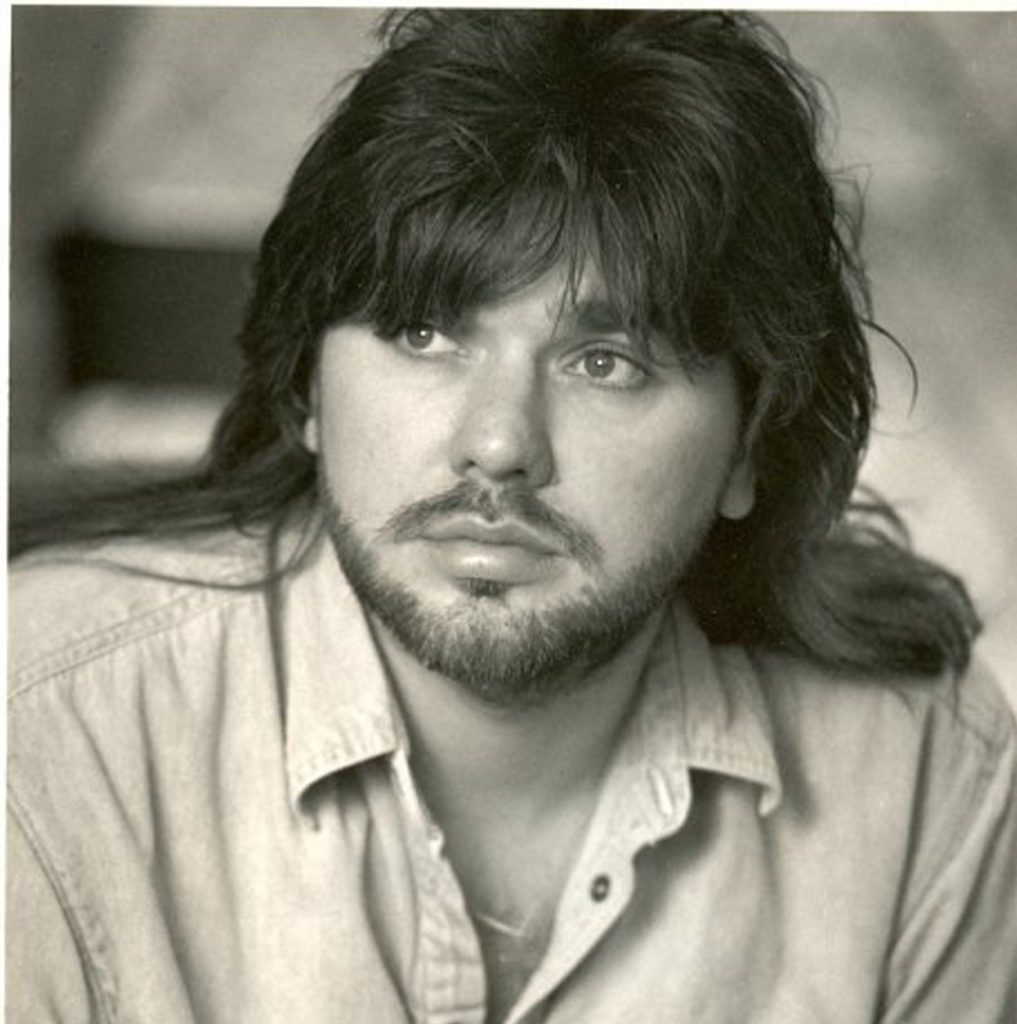
He is, for instance, longstanding friends of Lenny Henry and Dawn French – “we laugh a lot, we have a lot of fun”; he is distantly-related to the late Nobel Prize winning author William Golding, writer of Lord of the Flies; he was a cousin of Ernest Dudley who created The Armchair Detective, the hit radio series of the 1940s which spawned a TV series and film.
Worth mentioning, too, that Simon once tried his hand at stand-up comedy in which he ‘died’ in front of an audience of 500.
“It reminded me of that classic Bob Monkhouse gag ‘they laughed when I said I wanted to be a comedian – they’re not laughing now’.
“It was at Birmingham Cricket Conference, or something like that, and it was my third go at stand-up after a couple of smaller gigs. I started off okay but soon lost the audience and, because it was a script where one part logically followed another, I couldn’t get them back. It was not pleasant. I was 35 at the time and it put me off stand-up for life. The Birmingham Mail review, picking up on my Black Country accent, said I was another Frank Skinner but without the laughs.”
Simon chuckles heartily at the recollection, though the experience sounds hideous.
Only fair, then, to return to another success story. Simon’s 2007 book Life After Kes (GET Publishing) charts the aftermath of Ken’s Loach’s seminal 1969 film Kes, looking at those involved in the film and examining its impact.
The gritty northern drama – ranked by the BFI (British Film Institute) in the greatest 10 British films of all time – follows the story of Billy, who comes from a dysfunctional working-class family and struggles at school. He discovers fulfilment when he adopts a fledgling kestrel and trains it in falconry.
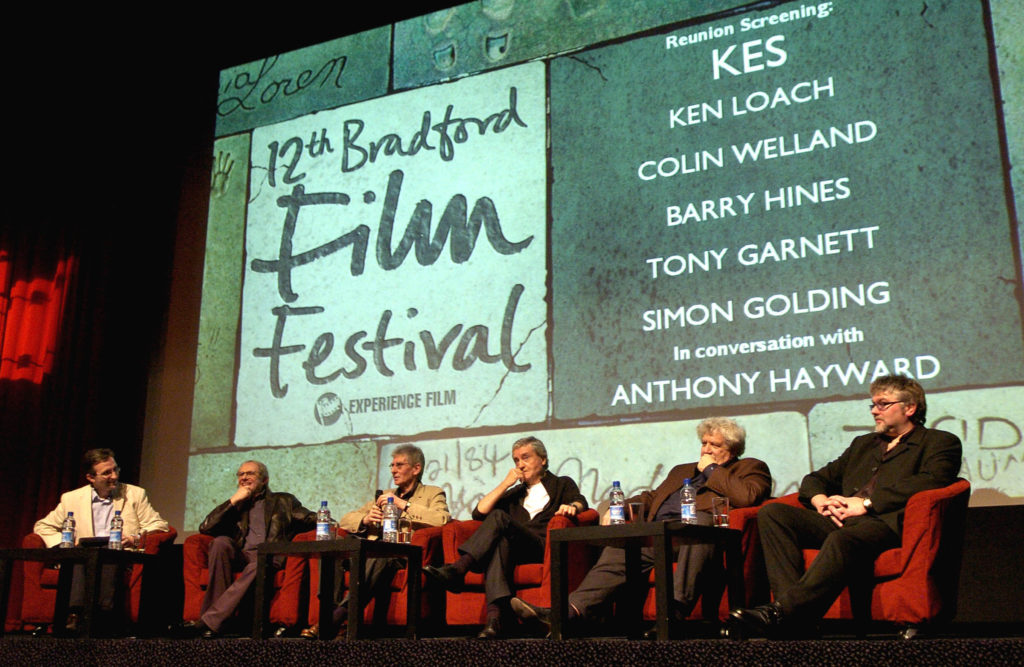
With a foreword by Michael Winner, Simon’s book was widely praised. He was part of a Kes reunion at Bradford Film Festival, taking to the stage with a star line-up of Loach, actor Colin Welland, who won the Best Supporting Actor BAFTA for Kes (and the Oscar 12 years later for Best Original Screenplay for the 1981 film Chariots of Fire); David Bradley who, as an unknown teenager with no acting experience played the lead role in Kes; Barry Hines, on whose novel it was based, and trail-blazing producer Tony Garnett. Interviewer was writer and broadcaster Anthony Hayward.
In late 2014 the paperback version was released by Apex Publishing Ltd, with the foreword by Melanie Sykes. A BBC documentary was made surrounding the book, celebrating 40 years since the release of Kes.
Simon is also working on a study of all Loach’s movies, called Ken Loach – Real to Reel.
His passion for the film very much reflects a deep interest in classic movies in general, reflected in a colourful collection of DVDs, posters, personally autographed photos and other memorabilia. He has a wide knowledge of Post War British and American films – and we suddenly divert into a conversation about the work of Billy Wilder, the late, great Academy-Awarding winning Hollywood director and writer.
Another work in Simon’s back-catalogue is Thursday’s Child, a true adventure story featuring Bridgnorth-based entrepreneur and aviation record holder Mike Kendrick, a British airship and ballooning pioneer, who was inducted into the Aviation Hall of Fame alongside the likes of Buzz Aldrin, Tom Cruise, and John Travolta. He was nominated for the award by long-time friend and former business partner Sir Richard Branson, who wrote the foreword for Thursday’s Child, launched to wide acclaim by DB Publishing in 2014.
Simon has written an authorized account of the life of the late Brian Glover, wrestler, actor and writer, while another new commission is a book about movies and TV projects made in Shropshire. His latest project is a biography of the French cinematic icon Jacques Tati titled The Quiet Man.

Simon collaborated on a West End show with actress and comedienne Helen Lederer in 2013, reprised for a month in 2014 with special guest Kimberley Walsh from Girls Aloud.
He has his own production company, Plan B Media Productions, which has been working on a documentary about comedians called Standing Up!
He has also written a comedy pilot script, For the Love of Ella, for a four-part series for TV. He is co-producing the project, which stars Ewen MacIntosh (big Keith in The Office) and Lucy Drive as Ella. The series will also include ex-cage fighter and actor/presenter Alex Reid, plus a string of other familiar faces from the TV and film world including Danny Peacock (Comic Strip), Françoise Pascal (sitcom Mind Your Language), Bruce Jones (Les Battersby in Coronation Street), Samantha Beckinsale, Vicki Michelle (sitcom Allo Allo!), Valerie Leon, Darren Day, Melanie Sykes, comedian and entertainer Billy Pearce, Helen Lederer and Diane Keen.
Simon is also writing a thriller film for Bruce Jones which explores a favourite theme.
“I like stories where ordinary people who lead quiet lives, are put in jeopardy and resort to extraordinary measures to save themselves and others. The man or woman who hates violence but suddenly finds themselves having to use a gun to survive,” he says.
Locally, he is a director and organiser of Bridgnorth Arts and Music Festival and is chairman and a presenter of The Valley Radio.
It all amounts to a punishing work schedule, reflecting a relentless creative energy. Simon turns 61 this January and shows no sign of slowing down. In a way, he is making up for lost time, for he didn’t take up writing professionally until he was in his early 30s.
Born in Dudley like his friend Lenny Henry, Simon had a string of jobs after leaving school with few qualifications – delivery driver and coal merchant amongst others.
“I owned my own coal delivery business for three years. My dad had run his own business, so it seemed a natural thing to do.”
He had always possessed a creative streak and was vaguely interested in writing at school but received little encouragement. Quite the reverse, in fact.
“One headmaster wrote in a report: ‘Simon sets ridiculously low standards for himself, which he fails to achieve’,” he recalls with a chuckle. It later transpired that Simon was an undiagnosed dyslexic.
“Had it been picked up on, I might have started writing sooner. But I don’t think it hurts to do other jobs, to have as wide a life experience as you can. It’s invaluable for a writer. Dyslexia is also not uncommon amongst writers.”
You bet! Authors who have overcome ‘word blindness’ include Agatha Christie, F Scott Fitzgerald, WB Yeats, Gustave Flaubert and Jules Verne.
Not bad company, Simon . . .

